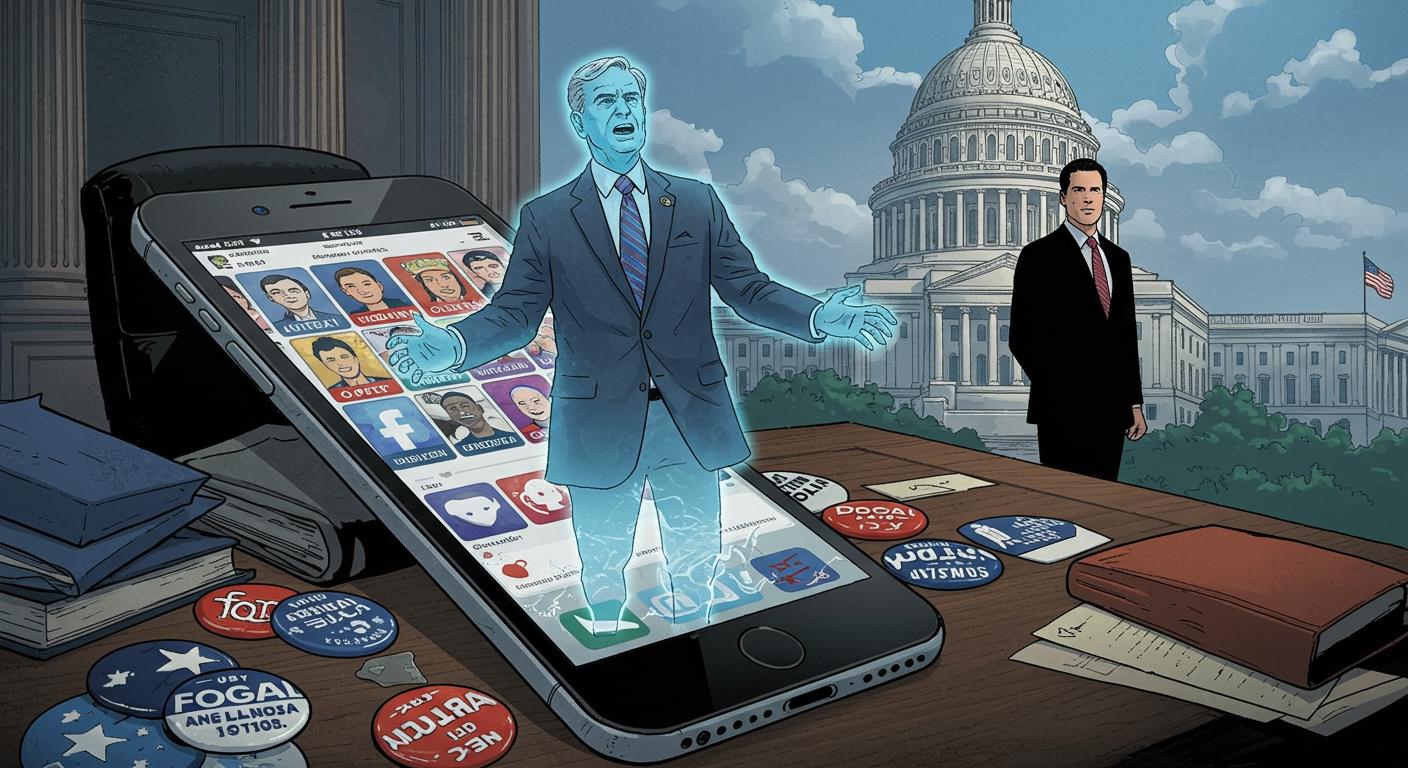There are certain occupational hazards when you spend your days digging through old archives or crawling the weirder corners of the internet, chief among them: occasionally feeling like you’ve stumbled into an alternate reality. Today’s virtue of oddity? The ghostly return of Rep. Gerry Connolly (D-Va.), whose social media accounts sparked a blend of intrigue, confusion, and perhaps an involuntary double take by appearing to endorse a candidate for his own seat—a month after his passing.
When the Dead Hit “Post”
Connolly, who died in May after a brief battle with cancer, seems hardly content with letting mundane issues like mortality stop him from participating in campaign season. According to Axios, his official X (formerly Twitter) and Facebook accounts startled many on Tuesday with posts urging Democratic voters in Virginia’s 11th District to honor his legacy by backing James Walkinshaw—his former chief of staff—in the coming primary.
The messages weren’t exactly veiled. As quoted in The Hill, Connolly’s Facebook campaign post read: “Early voting starts TODAY in VA-11! This is our first chance to stand up for our workers, our schools, our democracy, and everything Gerry fought for. Before his passing, Gerry endorsed James Walkinshaw to carry on that legacy because he knew James would never stop fighting for us. Make your plan and vote early and bring a friend. Every vote matters.” The X post, according to both outlets, was a condensed version. Both included a photo of Connolly and Walkinshaw—the same image now featured on Connolly’s campaign website, alongside his full endorsement letter written before his death, as detailed by Axios.
Connolly’s name has lingered through more than just social media; Axios also reports that fundraising emails sent from Connolly’s congressional campaign have actively promoted Walkinshaw, complete with links to his ActBlue page. It’s as if campaign infrastructure simply ran out of ways to say goodbye—and found one more job to finish.
If the tale feels like something out of a Victorian novella—mourning relatives gathering to receive instructions from the dearly departed’s last will, only instead of candlelight and velvet, we have ActBlue links and banner photos—it’s because the mechanics are, frankly, a little gothic.
Dead Men Do Tell Tales (and Endorsements)
For all the supernatural overtones, a practical answer is close at hand: Connolly’s political team is still running his online presence, as is not uncommon after a public figure dies, at least in the short term. The ethical question, though, hovers in the background. When a lawmaker’s digital persona encourages voters to act “for everything Gerry fought for,” where do we draw the line between honoring intent and using legacy?
Walkinshaw, it should be noted—according to Axios—is hardly a longshot. He’s one of ten Democrats in Saturday’s primary, but he enters with a robust list of endorsements from the Virginia Democratic establishment, including Rep. Don Beyer, former Rep. Jennifer Wexton, and several dozen state legislators. An internal poll released by Walkinshaw’s own campaign places him at 41%, well ahead of state Sen. Stella Pekarsky at 8% and state Del. Irene Shin at 6%. The Hill adds that other contenders in the race include Fairfax County planning commissioner Candice Bennett. Meanwhile, the district itself is hardly a toss-up: as The Hill notes, the heavily Democratic VA-11 includes Fairfax County and Fairfax City, territories where Kamala Harris won by 34 points in 2024 and Connolly last claimed victory by 33 points.
Yet even with so many living endorsements and a strong district lean, Walkinshaw’s campaign is most aggressively leveraging its ties to Connolly’s legacy—perhaps hoping voters see continuity rather than a blank page.
There’s a slight twist elsewhere. While Connolly’s wishes are very much alive in the VA-11 race, Axios highlights that among his House colleagues, the dearly departed’s endorsement didn’t carry such weight. In the election for ranking member of the Oversight Committee, Rep. Robert Garcia (D-Calif.) won in a landslide, bypassing Rep. Stephen Lynch (D-Va.), whom Connolly had recommended to follow him. Apparently, even the digital afterlife can’t sway every vote.
The Odd Afterlife of Politicians’ Socials
If you think this is an isolated leap into digital necromancy, think again. Axios points out that earlier this year, deceased Rep. Sylvester Turner’s (D-Texas) X account began following other lawmakers and journalists posthumously. There’s something at once touching and faintly surreal about the idea of politicians’ online personas carrying on, ghost-in-the-machine style, long after their owners have left the building.
For those of us who spend too much time trawling for digital ephemera, there’s a certain archival weirdness here. At what point do official social accounts pass from outreach tool to historical artifact? Should the messages of the deceased be preserved “as is,” or is it fair play for campaign staff to keep up the momentum as long as the infrastructure (and the mailing list) remain?
Legacy, Consent, and the Digital Liminal
By any measure, Connolly’s team is trying to honor both the spirit and the stated wishes of their former boss in keeping his endorsement alive. Yet when a dearly departed congressman’s “voice” nudges voters toward a preferred candidate, it’s fair to ask: who, really, gets to decide when a legacy campaign ends?
With early voting underway, the district’s voters will soon decide whether continuity, nostalgia, or digital campaigning from the great beyond holds the most sway. As the phenomenon of “posthumous endorsement” makes itself at home on our timelines, it’s hard not to wonder: How soon before campaign emails are replaced entirely by digital séances? Would you want your final post to be a campaign pitch, or is this just the new normal in the ongoing chat between the living and their digital ghosts?







